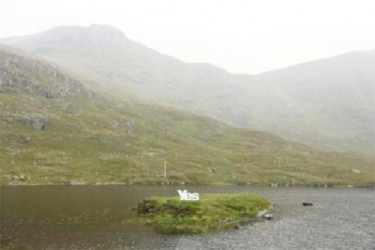GLASGOW, Scotland, (Reuters) – Thousands of independence supporters took to the streets of Scotland’s largest city, Glasgow, yesterday as polls showed the rival camps running desperately close just five days before a referendum which could bring the break-up of the United Kingdom.
Separatist and unionist leaders worked across the country to woo undecided voters among the four million people Scots and Scotland residents who will vote on their future on Thursday.
Scottish National Party leader Alex Salmond, who has spearheaded the drive for independence, said he was confident the “Yes” campaign would win.
“We’re not aiming to win by one vote. We’re aiming to achieve a substantial majority if we can,” he said on the BBC.

Alistair Darling, a former British finance minister and leader of the “Better Together” campaign, warned that if Scots vote to split from the United Kingdom, it would be an irreversible decision that would bring economic doom and gloom.
With promises from British political leaders of greater powers for Scotland in the event of a “No” vote, Scots could have the best of both worlds, Darling said.
And Queen Elizabeth, coming out of a Sunday morning church service near her Scottish residence Balmoral, told a well-wisher she hoped Scots would think very carefully about the future.
In Glasgow, the blue badges of the “Yes” to independence campaign dominated central Buchanan Street, with a convoy of cars driving through the downtown waving “Yes” banners and tooting horns. Buskers also sang in support of independence and a bagpipe-and-drum band drew a large crowd.
The Glasgow vote will be crucial to the result, given the city’s size.
Thousands of people marched to the BBC headquarters, complaining that the state-run broadcaster was biased against the “Yes” campaign.
“We pay our license fees. We don’t want them to favour us – we were just marching for an impartial state broadcaster,” said Liz, a teacher.
Salmond has frequently accused the BBC – which could be carved up if Scotland votes for independence – of siding with the unionists. A BBC spokesperson said the corporation has been “rigorously impartial”.
But the incident showed the high emotions and divisions stirred by the referendum, which could result in the end of the 307-year-old union with England and the break-up of the United Kingdom.








